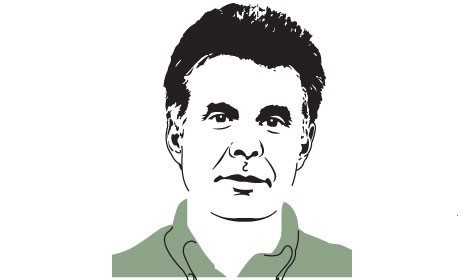The right of revolution
In the current edition of the The Week's Editor's Letter, William Falk explains why the NRA will fight any new gun laws


A free daily email with the biggest news stories of the day – and the best features from TheWeek.com
You are now subscribed
Your newsletter sign-up was successful
Every time an armed madman fills a school or office or shopping center with bleeding bodies, the question is asked: Why does the National Rifle Association oppose restrictions on semiautomatic weapons and high-capacity ammunition clips? As a non-hunter who's never owned a gun, I used to puzzle over this myself, until I decided some years ago to pay a visit to the local gun club. I told the very friendly group of guys I found there that I understood the need for a handgun or rifle to protect yourself or to hunt. But why insist on legal access to weapons and magazines created for the military and police, with the capacity to massacre dozens of people in seconds? They smiled at my naïveté. One day, they explained, we may need weapons with serious firepower to fight the military and the police, in an armed rebellion against the government.
This is not a fringe view, held only by shaved-head militiamen in camouflage uniforms. Though not often discussed around hostile audiences, the belief in the "right of revolution" is a fundamental tenet shared by tens of millions of gun enthusiasts, and is at the heart of the NRA's determined — and successful — fight against gun-control laws. As actor and NRA activist Chuck Norris puts it, "If the government decides to become a tyrannical government, our guns are to protect us against that. And that's really what the Second Amendment is all about." In response to the latest bloodbath, gun-control advocates will once again demand limits on how much killing power citizens can purchase. But it’s "the right of revolution" that will stand in the way.
A free daily email with the biggest news stories of the day – and the best features from TheWeek.com
The Week
Escape your echo chamber. Get the facts behind the news, plus analysis from multiple perspectives.

Sign up for The Week's Free Newsletters
From our morning news briefing to a weekly Good News Newsletter, get the best of The Week delivered directly to your inbox.
From our morning news briefing to a weekly Good News Newsletter, get the best of The Week delivered directly to your inbox.
William Falk is editor-in-chief of The Week, and has held that role since the magazine's first issue in 2001. He has previously been a reporter, columnist, and editor at the Gannett Westchester Newspapers and at Newsday, where he was part of two reporting teams that won Pulitzer Prizes.
-
 The ‘ravenous’ demand for Cornish minerals
The ‘ravenous’ demand for Cornish mineralsUnder the Radar Growing need for critical minerals to power tech has intensified ‘appetite’ for lithium, which could be a ‘huge boon’ for local economy
-
 Why are election experts taking Trump’s midterm threats seriously?
Why are election experts taking Trump’s midterm threats seriously?IN THE SPOTLIGHT As the president muses about polling place deployments and a centralized electoral system aimed at one-party control, lawmakers are taking this administration at its word
-
 ‘Restaurateurs have become millionaires’
‘Restaurateurs have become millionaires’Instant Opinion Opinion, comment and editorials of the day
